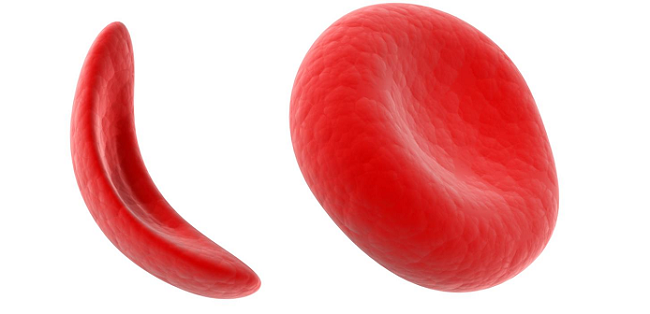
‘AA’ and ‘AS’ partners produce ‘SS’ baby : Is that possible?
Tests for sickle cell disease and related conditions continue to create confusion and unnecessary anguish for many people. The following illustrate some of the serious problems caused by inadequate testing and incorrect interpretation of results.
Advertisement
Case 1: A healthy man who is “sickling negative” has a healthy wife who is AS. The couple has a healthy-looking baby daughter who later begins to show signs and symptoms of sickle cell disease (SCD). The baby’s doctor sends her to a laboratory for two blood tests, “Sickling test” and “Haemoglobin (Hb) electrophoresis”, if she is “sickling positive”. The lab reports say the baby is “sickling positive” and is “SS”.
The father becomes very upset, goes back to the doctor to report that he is “sickling negative”, so he could not have a baby who is “SS”. The doctor says, “I am sorry to hear that, Sir; I advise you to go to the lab and have blood tests to know your true haemoglobin type”. The man, quite disturbed, returns a few days later with the results: “Sickling negative”, and “AA”. The doctor pulls the man aside and says, “Sir, if I were you, I would have a serious conversation with my wife about the true father of the baby”.
Case 2: A mother is crying because a doctor says her son is “SS” even though she is “AA” and her husband is AS. She begins to wonder whether the child is truly hers.
“Sickling-negative” people having SS babies; “AA” and “AS” couple producing “SS” babies. Are these possible? The correct answer is “NO!”
Simply stated, the “AA” and “SS” laboratory reports were most likely wrong.
What are these A, F, A2, S, C, etc.? These are haemoglobin (Hb) Types; they are not “Blood Groups” – such as, O, A, AB, B, often listed with Rh Types, positive (A+, O+) or negative (A-, O-). Blood groups describe chemicals on the surface of red blood cells (RBC); they are typed to match blood for transfusion. Hb is the oxygen carrier chemical inside the RBC. The A, F, A2, S, C Hb types are the more common of the hundreds of different types of Hb. We inherit genes from our parents that determine the Hb types or Blood Groups we make.
How do we diagnose Hb disorders in Ghana?
Two tests commonly used in Ghana to determine Hb Type are the “sickling test” and Hb electrophoresis. These tests have limits in what they can show. “Sickling test” cannot tell what types of Hb are in a person’s blood. It just tests for the abnormal behaviour of Hb S – the sickle Hb.
• Sickling test is “positive” in people with SS, SC, or any other type of SCD, or a healthy person with AS, a “carrier” of the S gene.
• Sickling test is “negative” in people who do not make Hb S; they could be AA, AC, or have any abnormal Hb condition that is not S.
• Sickling test is “negative” in people who carry beta-thalassemia, another inherited Hb condition.
The “AA” father (Case 1) and “AA” mother (Case 2) most likely have inherited from one of their parents one set of Hb A genes and a “beta-zero thalassemia” gene from the other. Such a person has “A/ beta-zero thalassemia”, makes mostly Hb A in the RBC, and is “sickling negative”. Hb electrophoresis “shows” the Hb A in the RBC of people with “A/ beta-zero thalassemia but it cannot “show” the beta-zero thalassemia because that condition makes no (“zero”) Hb. The lab “sees” mainly Hb A on the electrophoresis and cannot say whether it is made from only one or both parents.
The children of these parents were labelled “SS” but, they could not be SS because only one parent in each case has the S gene to give the child. Most likely, each child has “S/ beta-zero thalassemia”, a type of SCD that is just as severe as true SS. The lab needed to do additional testing of the false “AA” parents to detect the beta-thalassemia and resolve the apparent confusion and anguish.
Every year, the National Newborn Screening Programme for Sickle Cell Disease encounters such instances of “diagnostic puzzles”. In case 1, the doctor suspected that the father was not the true father of the baby. Unfortunately, similar cases have led to marital discord, refusal of paternal responsibility by irate fathers, or even divorce. In case 2, the mother, misdiagnosed as “AA”, wondered whether the baby is truly hers.
Doctors, nurses, and genetic counsellors trained in Hb disorders can accurately interpret the Hb test results and explain them to couples, individuals, and families.
The Sickle Cell Foundation of Ghana has conducted its second Sickle Cell Genetic Counsellor Training and Certification Workshop. We need more qualified genetic counsellors to explain these test results accurately.
The writer is President,Sickle Cell Foundation of Ghana
For more information, please contact The Foundation at:
030 2949 815 / 024 642 1877 / 020 065 9550




